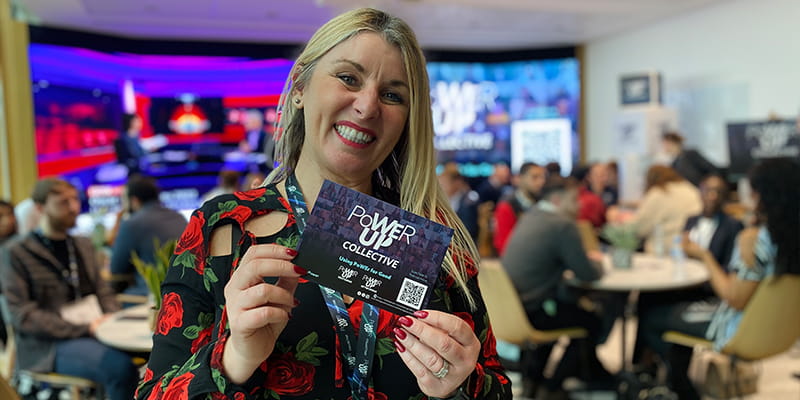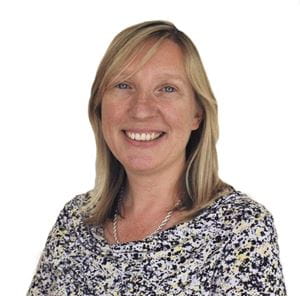Northern Power Women is a campaign to encourage diverse and collaborative practice across organisations in the North and showcase the talent needed to deliver the Northern Powerhouse agenda. Infrastructure View spoke to founder Simone Roche MBE about accelerating equality and harnessing the passion needed to drive the better economic and social outcomes promised by the UK government’s new Levelling Up ambition.
The Northern Powerhouse programme was launched as a concept in June 2014 by then-Chancellor George Osborne, long before the phrase “Levelling Up” had entered the public consciousness. His aim was to boost economic growth in the North of England by forming a cluster of northern cities that, working together, could drive businesses and create jobs across the region.
“The powerhouse of London dominates more and more. That’s not healthy for our economy and it’s not good for our country,” Osborne told an audience of business leaders in Manchester Science Museum. “We need a Northern Powerhouse too. We need to bring the cities of the north together as a team – that’s how Britain will beat the rest.”
The plan was to target public investment towards the core cities of Hull, Manchester, Liverpool, Leeds, Sheffield and Newcastle and to encourage private sector investment via the associated Local Enterprise Partnerships.
It was an ambition that resonated with Liverpool-based events marketing executive Simone Roche MBE in March 2015 and prompted her to create the Northern Power Women movement to boost the gender and social diversity of thinking behind the plan. At the time she was working on the Women 1st Conference and Shine Awards but wanted to create something that truly showcased the talent that existed outside London; to tell the story about opportunities in the north and focus on the people that were actually making things happen.
“There is such a lot of talent here and we were simply trying to bring their voices to the table,” she says, highlighting that from day one Northern Power Women set out to be an all-gender, diverse programme to create rich, active conversations about opportunity and need across the region.
Elevating voices through collaboration
While engaging women is core to its activities, setting up Northern Power Women meant reaching out to the typically under-represented groups such as young people, women, ethnic minority communities and businesses. But it also meant bringing on board all genders to ensure that diversity was seen as everybody’s opportunity.
“It is not just about bringing women together but about getting all voices heard,” she explains. “If we are going to have these big conversations (about transforming the region) it is vital to make sure that everyone is involved.”
Roche says that Northern Power Women’s focus is on what we can all do to help elevate all voices and create a collaborative approach to drive change; to identify and create the role models and tell their stories. In the last seven years, the organisation has built a community of 85,000 and remains committed to engaging all genders, sectors and levels of experience as ‘agents of change’. It describes its mission as being ‘to connect, collaborate and celebrate achievements as campaign champions and advocates and drive gender balance across the north of England’.
Underpinning Levelling Up ambitions
It is a mission that certainly aligns with the Government’s latest Levelling Up White Paper, published in February 2022. This plan sets out a pathway to focus investment outside London and so start the long process of rebalancing the UK’s economy, its spread of wealth and the life opportunities that follow. And while the strategy makes clear that Levelling Up is more than a North-South divide issue, it is clear that investment in infrastructure to accelerate the Northern Powerhouse plan is central to the ambition.
Transport strategy for the region is driven by Transport for the North (TfN), the sub-regional transport body responsible for the development of transport strategy to underpin the regional economy. It’s original Strategic Transport Plan outlined some £70bn of investment between now and 2050 – including the £39bn Northern Powerhouse Rail network to link Liverpool to Hull and Sheffield to Newcastle – which, it said, could add an additional £100bn in economic growth and create up to 850,000 jobs.
However, along with cancellation of the eastern leg of High Speed 2 to Leeds, this project was significantly scaled back by the recent Integrated Rail Plan, with a new scheme instead using upgrades to existing lines from Liverpool to Warrington, and a new high-speed line to Manchester using tunnels constructed for HS2.
“Investment in trains and levelling up are the common conversation topics in the world of the Northern Powerhouse,” says Roche, reflecting on the clear disappointment felt across following the scaling back of investment. “But I see our activity as more of a call to arms – a coming together of people and ideas, putting strategic corporate goals aside for the common good and embracing the spirit of Northern grit.”
Mentoring to tap into people power
Humans, she emphasises, are key to driving the plans for Northern Powerhouse. While certainly public investment in infrastructure is important to underpin the ambition, it is people, their skills and talent and the power of collaboration that will ultimately drive growth and change lives.
“For me that is what is really powerful about the Northern Power Women movement,” she says. “It's about how we bring these different types of people together and encourage collaboration about what we need in the future.”
Levelling up, says Roche, starts by having the right people actively in the conversation, not just around the edges. And given that many of the ideas and investments needed to create change could take decades or more to get off the ground, she points out that they need to be planned today with future talent in mind.
“It's about enabling that future generation to take part and get involved in the conversation – about engaging the people that would not normally be engaged,” she says. “Their message is ‘when you're having these conversations bear us in mind because we are the people that will be leading it in the future.”
Mentoring is central to empowering the next generation, says Roche, highlighting the PoWEr Collective initiative which connects future talent with local organisations across the North of England. Driven through so-called PoWEr Up Mentoring or Networking sessions, the programme helps mentees at the start of their career to engage with industry leaders, ask questions, seek advice, and myth bust all the misconceptions that surround what a person in business looks like.
Conducted either virtually or in person, the PoWEr Up programme has already created over 12,000 conversations, created £500,000 in social value, and engaged a community of over 85,000.
“Our clarion call for 2022 is to get the country mentoring – it sounds quite light and quite simple, but everyone can do it,” she says. “We must attract and grow talent for the future but young people don't really know what careers, jobs and innovations are needed. We are not talking or story-telling enough.”
Accelerating careers
Roche speaks from experience when it comes to career planning, highlighting that when she was 17, she also had no clue about what she wanted to do or even what opportunities there were for her. She joined the Navy to find out and this seven-year adventure opened her eyes to the world and gave her the confidence and drive to be an entrepreneur and business owner.
“Creating Northern Power Women was about bringing people together from different stages of their career to share stories and experiences and to demonstrate that even for innovators, the path has been trodden before and the mistakes have been made,” she says. “I'm quite proud that I've created something which is generous in its spirit. The essence of Northern Power Women is about role modelling to help those who are powerless or futureless, recognising that we've all got skills to help each other.”
To underpin its work and activities, NPW has created two technology platforms to enable leaders and colleagues within businesses across the north to collaborate, exchange ideas, find talent and learn from others’ experiences. Roche describes it as a focus on the human infrastructure that underpins change.
The first platform is called Be Heard and is a searchable resource to locate speakers across the north for the media and events. It is specifically designed to help amplify women’s voices and encourage more equal representation and access talent that might typically be overlooked in the media.
The second is called the Power Platform which connects people and highlights opportunities for collaboration and learning. While similar in concept to LinkedIn, Roche is clear that its power comes from the focused nature of connections – by linking early career professionals with mentors or students with entrepreneurs it creates, she explains, a “generous community designed to make it easy for professionals to give back”, breaking the myth that successful businesspeople are too busy to care about the career development of others.
Celebrating business big and small
Northern Power Women works with a range of organisations across the north from huge global firms such as Barclays, EY and KPMG to the smaller local micro business that form the heart of communities. In all cases, the goal is to work to drive and accelerate both the economic and social value outcomes from any investment in the region.
The Northern Power Women Awards, a celebration of the region’s businesses, took place on 21st March 2022. Now in its seventh year, these annual awards are designed to showcase and role model gender equality, transform organisational culture and propel business growth and productivity in the UK from the North. A range of awards celebrate both individual and organisation successes and provide a night of celebration and a platform to drive future business improvement.
By bringing these businesses together and helping their staff to interact and share knowledge through peer-to-peer collaboration, Roche is convinced that the entire Northern Powerhouse region – and beyond – can benefit.
“The people within big organisations and small firms can learn from each other,” she insists. “That's where that peer-to-peer networking comes in. It’s the power of collective thinking that influences learning from each other to ensure that the benefit of collaboration goes both ways.”
Carter Jonas is a sponsor of the Northern Power Women Awards, and Jane Barlow – Partner and head of our Warrington office – is one of the newest mentors to join the programme.





